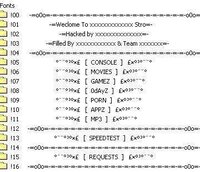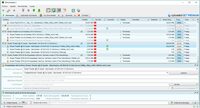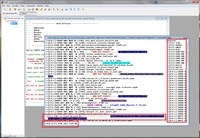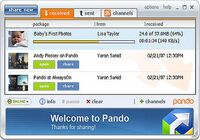A bulletin board system or BBS (also called Computer Bulletin Board Service, CBBS[1]) is a computer server running software that allows users to connect to the system using a terminal program. Once logged in, the user can perform functions such as uploading and downloading software and data, reading news and bulletins, and exchanging messages with other users through public message boards and sometimes via direct chatting. In the early 1980s, message networks such as FidoNet sprung up to provide services such as NetMail, which is similar to email.
Many BBSes also offer online games in which users can compete with each other. BBSes with multiple phone lines often provide chat rooms, allowing users to interact with each other. Bulletin board systems were in many ways a precursor to the modern form of the World Wide Web, social networks, and other aspects of the Internet. Low-cost, high-performance modems drove the use of online services and BBSes through the early 1990s. InfoWorld estimated that there were 60,000 BBSes serving 17 million users in the United States alone in 1994, a collective market much larger than major online services such as CompuServe.
The introduction of inexpensive dial-up internet service and the Mosaic web browser offered ease of use and global access that BBS and online systems did not provide, and led to a rapid crash in the market starting in 1994. Over the next year, many of the leading BBS software providers went bankrupt and tens of thousands of BBSes disappeared. Today, BBSing survives largely as a nostalgic hobby in most parts of the world, but it is still an extremely popular form of communication for Taiwanese youth (see PTT Bulletin Board System).[2] Most surviving BBSes are accessible over Telnet and typically offer free email accounts, FTP services, IRC and all the protocols commonly used on the Internet. Some offer access through packet switched networks or packet radio connections.
 video games gallery from the last century
video games gallery from the last century















